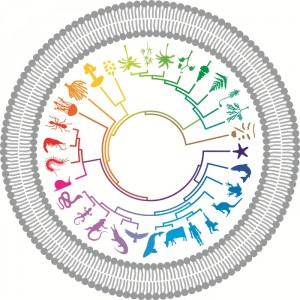 Selective journals, in particular journals that select on grounds of interest or importance, inevitably disappoint many authors of papers that ought to be published. Aspiring authors may submit their papers to three or four or even more journals in succession before acceptance, consuming referees and losing time with each submission.
Selective journals, in particular journals that select on grounds of interest or importance, inevitably disappoint many authors of papers that ought to be published. Aspiring authors may submit their papers to three or four or even more journals in succession before acceptance, consuming referees and losing time with each submission.
So it is a good thing that eLife, which operates a particularly labour-intensive system of peer review and aims high for interest and importance, will from today be offering authors of rejected papers the option of taking the referees’ reports with them to other journals, including BMC Biology, Biology Open, and all journals published by PLOS and EMBO.
Of course it will be the authors’ choice whether they take up the option, and eLife’s referees will have to agree to having their names released to the other journals (I shall be surprised if they don’t, generally); but it is in principle obviously desirable as a way of saving the time of authors and limited resources of competent referees.
BMC Biology has for the past three years been operating a policy with both these aims. We instigated re-review opt-out to allow authors to choose whether papers are seen again by referees after revision; and we have operated a largely informal policy of considering papers that have been rejected by other journals on the basis of the (anonymous) referees’ reports from those journals, subject to advice from a BMC Biology Editorial Board member. Of course it is much easier to base decisions on other journals’ referees if you know who they are (and therefore where exactly their expertise lies).
How smooth a passage is transfer from eLife likely to be? Authors offered the transfer option will be warned that the recipient journal may seek further advice, and it’s impossible to say how often this is likely to happen. BMC Biology will generally avoid it as far as possible, in favour of checking the existing reports with an appropriate Editorial Board member.
Clear technical flaws are of course likely to preclude publication in any of eLife’s transfer partners: what the portable peer review system allows is the operation of different editorial judgements of what is interesting or important without serial assessements of technical validity.
On the importance of a paper there is an element of informed guessing in most decisions made by journals; Marc Kirschner argued persuasively at the peer review panel discussion we recently held in Boston that the importance of a paper can often be judged reliably only long after its publication (citing restriction enzymes, which are the most egregious example). Interest is still more prone to fashion and the prejudices (inevitable, with the best will in the world) of referees or editors.
Even the criterion of technical soundness can arguably be operated too stringently. One of the most important early papers on how virus-infected cells are recognized by the immune system was wrong in a significant technical detail; and the data in Harold Weintraub’s paper launching the idea of master-regulators in gene expression programs clearly failed to support its conclusions. (Master-regulators of gene expression remain an arguable concept, but the paper unquestionably drove major advances in the understanding of gene regulation.) Besides, some fields are inherently messier than others, and progress may depend on some latitude in the rigor demanded of the evidence contributing to a developing understanding of a complex system. This is likely to be true especially in new fields.
So while some journals may insist that a striking observation be extended to an investigation of its mechanism, or an interesting interpretation be backed by irreproachable evidence, others may see the publication of striking observations or reasonable interpretations as a legitimate and sometimes important part of the scientific process.
It is surely an advantage not to have every paper undergo a fresh round of technical scrutiny each time it is considered by a fresh editorial eye.
- The scientific Odyssey: Pre-registering the voyage - 3rd May 2017
- A year of almost anything you can think of in life science – an eclectic pick from BMC Biology - 13th January 2017
- Peer review: opting out - 23rd September 2016
Comments